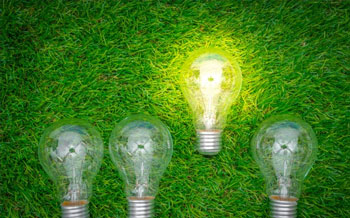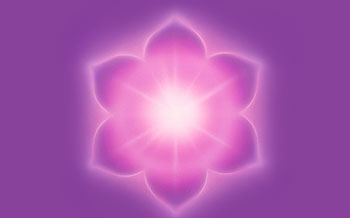When we are on a spiritual path we realize the importance of these creations and we take accountability for the impact our thoughts, words and deeds have on others.
Again, we have just so much energy allotted to us each day. Where do we invest it? What do we create with it? And do we feel blocked in our ability to create because of feelings of guilt, frustration or inadequacy?
Health practitioners have shown that ailments in the area of the seat of the soul—corresponding to the organs of reproduction and elimination—are sometimes related to an unresolved issue with creativity.
When we feel “stuck” and cannot express our innate creativity, then our emotions and body reflect this tension.
I know of several cases where women who felt boxed in were plagued with chronic health problems in the breast and uterus until they came to grips with this issue.
Janice and Ellen, for example, were always filled with new ideas, but their work environment would not allow them to give their gifts.
As a result, both were apt to revolve their situations and complain heavily, feeling powerless to break out of their boxes. Both began to develop health problems.

Eventually, Janice was forced to make a job change—a hidden blessing that opened the door for her to follow her heart and take on responsibilities that allowed her to blossom.
Ellen, in her fifties, took the bold step of going back to school to pursue her real passion. Both are thriving, and their emotions and health show it.
When Janice and Ellen finally stopped and listened to their soul intuition, a new world opened up for them.
That’s what can happen when we commune with our soul through our soul chakra.
When we aren’t able to tune into the voice of our soul, it’s sometimes because our overactive or domineering intellect has suppressed our soul senses.
Our intellect is a wonderful vessel for our Higher Self to work through, but the reasoning, educated mind alone will not create that important connection to our soul.
In fact, it can short-circuit it.
“There is a mode of knowing that is above intelligence,” said the fifth-century Neo-platonic philosopher Proclus. “Let the intelligent soul transcend intelligence… This, my friend, is the divine working of the soul.”
The intellect cannot take the place of our soul. That is why the education of the heart and soul is just as important as the education of our mind.
To create a safe harbor for the soul, we sometimes have to turn off the intellect and consciously enter into the heart and soul to get in touch with our inner creative self.
The Key: Forgiveness
An essential part of the process of freeing ourselves from old patterns is encapsulated in a single word: forgiveness.
If we do not forgive the wrongs and injustices practiced against us, we allow ourselves to be tied, through the law of karma, to the one who has wronged us.
The old vendettas that individuals, families and even nations hold against one another go on for centuries for this very reason.
Their warring never ends because their hatred forms a strong rope between themselves and their enemies—a rope that grows thicker and thicker the more they hate.
When those involved reincarnate, they carry the same entrenched energy patterns with them, and the vendettas live on and on.
Resentment is a vicious circle. It drains us of our energy because part of us is always focused on that unresolved situation.

As Emerson put it, when this is the case “we are not free to use today, or to promise tomorrow, because we are already mortgaged to yesterday.” When we forgive, we free up 100 percent of our energy for constructive endeavor.
There may be times when we feel we cannot forgive someone. We believe the crime he or she has committed against us or a loved one has just been too great.
God has taught me that in a situation like this we can embrace the soul and then ask God and his angels to bind the unreal self, the dark side, of the person that caused him to commit the crime.
No matter how bad a person’s deeds are, if we forgive the soul—that part of his being that still has the potential for good—we can avoid a karmic entanglement.
When we hold on to these unpleasant experiences, our energy gets knotted up and we create an energy blockage.
It’s never really a personal issue, no matter how personal it seems.

The situation is often a testing ground—an opportunity to see if we’ve developed forgiveness and compassion.
Mother Teresa once said, “People are often unreasonable, illogical, and self-centered; forgive them anyway. If you are kind, people may accuse you of selfish, ulterior motives; be kind anyway… If you are honest and frank, people may cheat you; be honest and frank anyway… You see, in the final analysis, it is between you and God; it was never between you and them anyway.”
Often the hardest part of letting go is forgiving ourselves—realizing that no matter what mistakes we have made, at the time we made them we were doing the best we could.
We don’t have to deny the mistake, but we do have to get over it. We have to tell ourselves, “The mistake was no good, but I’m still a good person,” and then learn from the experience.
Making mistakes is the way we learn. As Thomas Edison said, “I have not failed. I’ve just found 10,000 ways that won’t work.”
Sometimes we don’t even realize that not forgiving ourselves is what’s holding us back. Victoria came to this soul awareness on her road to healing.
In her early thirties, she found out that she had breast cancer.
“After the initial shock,” she says, “it took me a while to realize that this was a warning—not only from my body, but from my soul. I had to come to grips with the fact that I was wearing myself out (the message from my body) and I wasn’t having much fun in the process (the message from my soul).
“After my surgery, I changed my diet and adjusted my schedule. Physically, I was on the road to recovery. But emotionally, I was still in a crisis.
“I had hit a stone wall and I didn’t know how to get around it.
“One day I just broke down. And out of the midst of my tears, I could hear my anguished soul giving me the key: I had been beating up on myself ever since I had found out the news. All this time, I had believed that I was a ‘bad’ person because I had gotten sick. I had never forgiven myself for the cancer—because I didn’t think I was worthy of forgiveness. That was the wall.
“Before I could move forward, I had to get to the point where I valued myself enough to accept that I may not have done anything ‘wrong,’ and even if I had, I was worthy of forgiveness.
“It wasn’t easy wending my way through this labyrinth of misconceptions I had somehow taken in. But as I moved through the process, changes took place. I started to blossom. I started having more fun. And the real me came out of hiding.”
Gautama Buddha once said, “You can look the whole world over and never find anyone more deserving of love than yourself.”

If we want to make lasting changes in our lives, we have to love our soul—and we have to patiently nurture it through the healing process.




